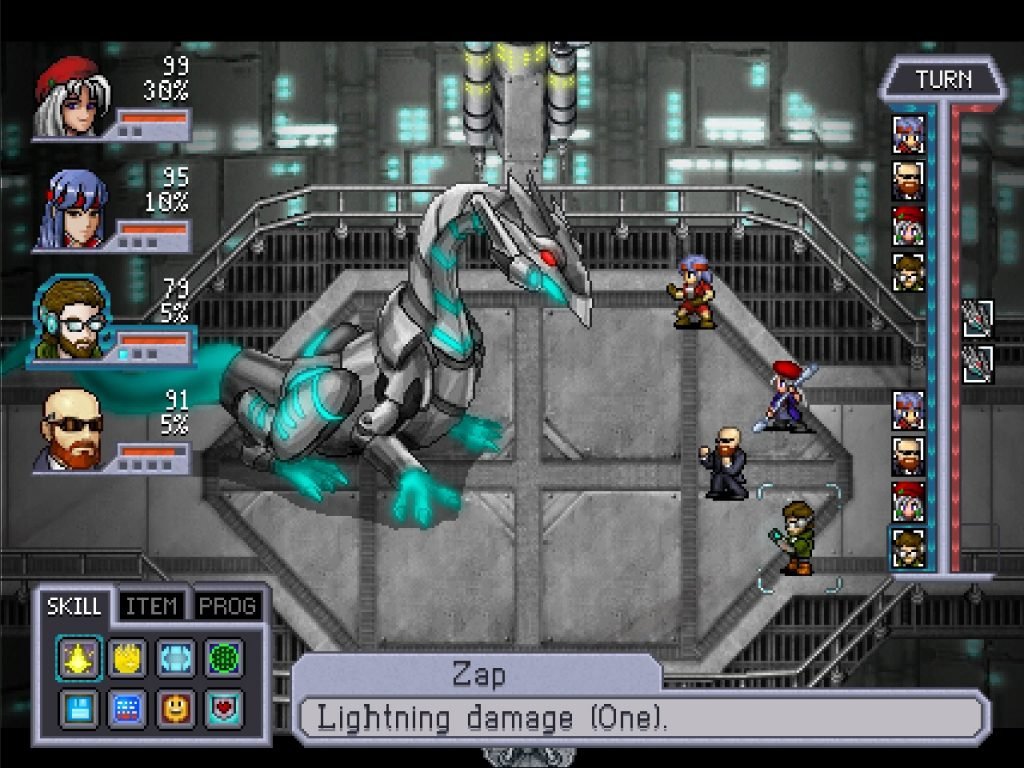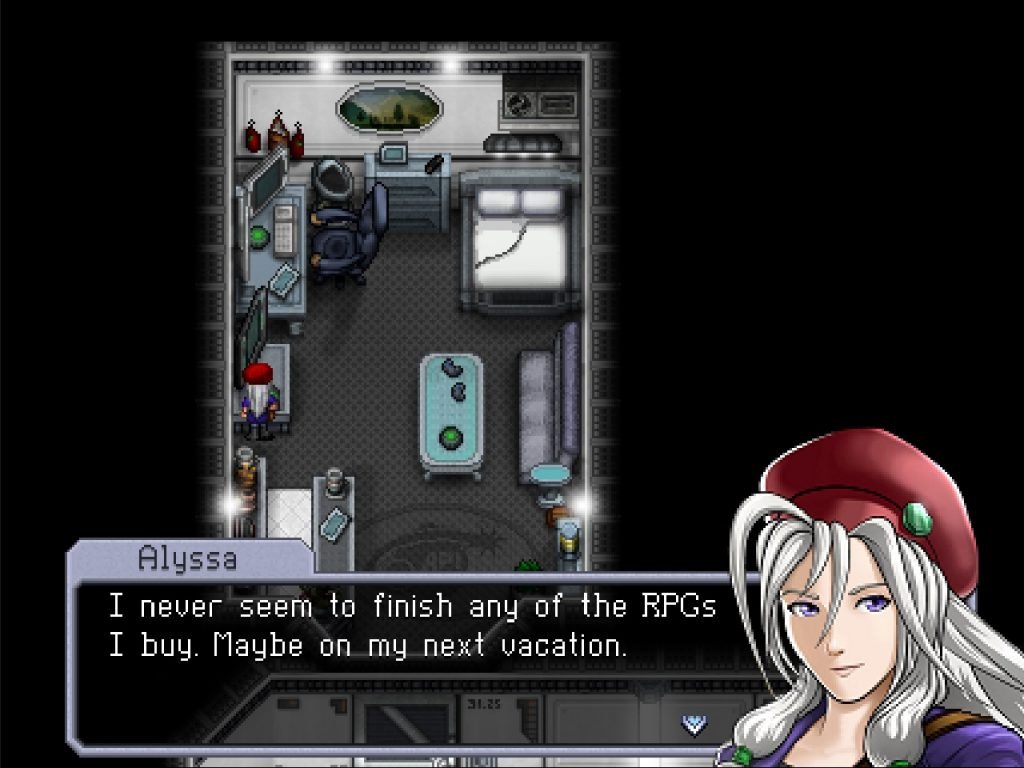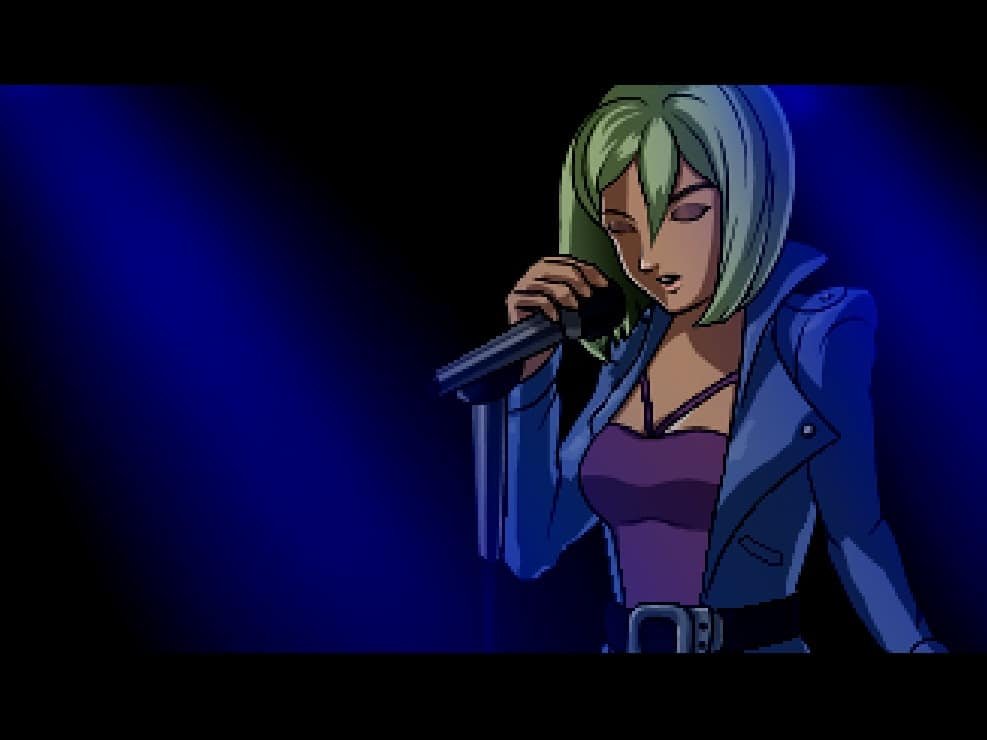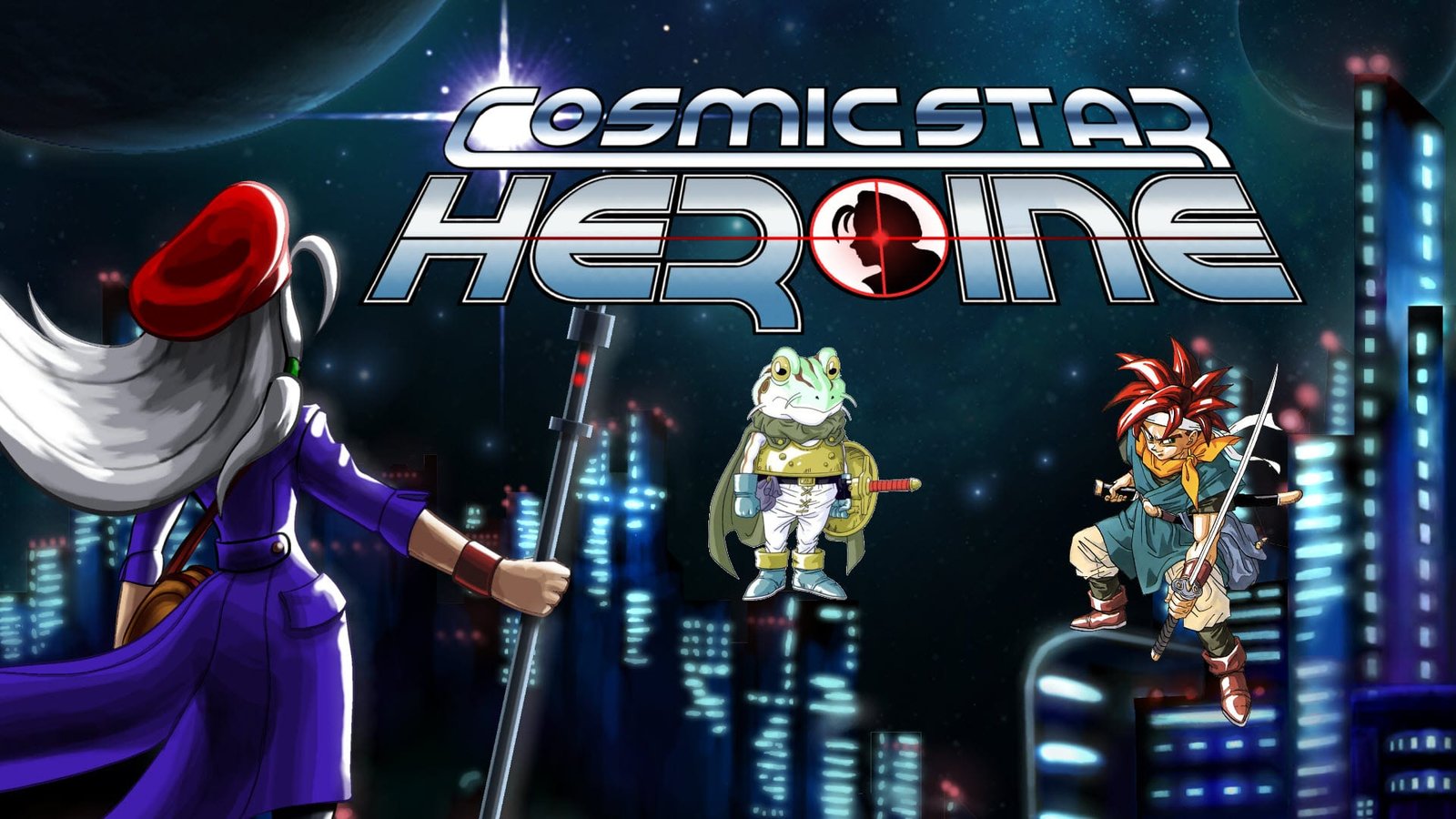In just a few days, one of the Geek to Geek Media staff's favorite RPGs, Chrono Trigger is turning 25. A quarter-century later this 16-bit classic continues to inspire game developers today. This influence can be felt especially strongly in indie games such as Cosmic Star Heroine by Zeboyd Games.
To kick off this week's celebration of Chrono Trigger‘s 25th birthday, Robert Boyd and Bill Stiernberg of Zeboyd Games were kind enough to set aside some time to chat with us about Chrono Trigger and its influence on their work on Cosmic Star Heroine.
Be sure to continue the fun with our Chrono Trigger 25th Anniversary Celebration by checking out all our other posts.
As you may be aware, this year marks the 25th anniversary of Chrono Trigger. When I streamed Cosmic Star Heroine earlier this year, many viewers remarked on the parallels they saw between Chrono Trigger and CSH. Clearly, it's a game that had a significant influence on your work. Can you tell us a little about your experience with Chrono Trigger and classic JRPGs?
Robert: I've been playing JRPGs since I was a kid playing on the NES. I remember hearing about Chrono Trigger from a friend at school and making fun of the fact that it had characters with names like Frog & Robo. Then I saw a copy at the rental store & instantly fell in love. It quickly became one of my favorite SNES games.
Bill: Chrono Trigger is easily one of my favorite SNES games. I remember reading the rave review from the Role Player's Realm section from GamePro back when it first came out. Combined with the intriguing ads for the game in the magazine compelled me to buy it. My fondest memories of it as a kid were taking turns playing it with my two brothers. We were so completely blown away by the compelling characters and plot twists and music, we were hooked. And then we had to find all the endings, playing through in New Game+ (which was incredibly novel and cool to us at the time). We were obsessed with the game.

In addition to Chrono Trigger, were there any other games or media that informed your work on CSH?
Robert: So many. The three main influences on Cosmic Star Heroine were Phantasy Star, especially Phantasy Star IV (wanted to do a new Phantasy Star game and then decided just to make our own similar game), Lunar: Eternal Blue (with the general story/character vibe & Sega CD-style cutscenes), and Chrono Trigger (the visuals and on-map battles). But really, we take influence from all sorts of things – for example, the idea of self-contained battles was heavily influenced by Final Fantasy XIII while the recharge-based combat system was devised while thinking about Xenoblade Chronicles.
Bill: Robert mentioned the main ones in that it was conceived as kind of our own spin on a Phantasy Star game but grew out of a desire to make something like Chrono Trigger. What we really wanted to do was create something with a fast and interesting pace like CT. But we also wanted a really heavy sci-fi setting and vibe, even more so than Phantasy Star. Games like Suikoden but also Mass Effect inspired the “home base” ship in the game; you collect additional crew but you're also able to explore the ship and interact with NPCs and other characters as the story progresses.
Something that also really drove the battle system was Bravely Default. We always felt that Defend commands in many RPGs felt a bit useless to most players, but in Bravely, when you defend you get a Brave point to enact an action – the result is a system that encourages you to think several moves in advance while also making Defend useful. We really focused the battle design in CSH around how to incorporate Defend into the mechanics and encourage players to plan moves in advance. And so the system of using Defend to Recharge abilities and having to plan which abilities you can use – and when – was born. (This line of thinking led to the Hyper System as well). There's a ton of other smaller influences along the way, such as how the intro and introductory mission in CSH were inspired by FF7, but I'll leave it at that!
Compared to a lot of other RPGs, CSH has a relatively brief campaign with most players finishing it in under 20 hours. Given more time or resources, would you have wanted to make the game longer, or was keeping the scope of Alyssa's adventures contained always a goal of the project?
Robert: What you see was always the basic plan. If anything, I think we may have made it too big – by the end of the game's 3-4 year development, I was long ready to be done. I was looking at Lunar: Eternal Blue and in a lot of ways, there's as much or more content in Cosmic Star Heroine. The difference is that because there isn't as much dialogue or random battles, the player can go between major story beats at a much faster rate.
Bill: A big goal we've had since starting game dev was that we wanted to target a market of gamers who enjoy RPGs that don't necessarily want to commit to a 40+ hour campaign, and those who enjoy fast-paced progression and mechanics. We could have easily expanded Cosmic Star Heroine or even games like Cthulhu Saves the World into 30 or 40-hour campaigns by upping the number of battle encounters and changing little else, but that's not the goal of our designs here. If we had a lot more resources in making CSH, we'd probably still target a 20-hour campaign, but just push more quality or variety in along the way. That said I think it turned out great and it's the kind of game we always wanted to do.

Something I really appreciated about CSH was that with every dungeon and boss battle the game threw at me, I always felt like I had the tools to succeed as long as I strategized; grinding was almost never necessary, even playing on the higher difficulty levels. Could you tell us a bit about your approach to difficulty and balancing when designing an RPG?
Robert: One, I think people should be able to play games the way that they want to play them so I like to include difficulty options. There are many games that I like that I would have loved if they provided the option for a harder challenge. But if someone wants a game to be easy because they want a no-stress experience, who am I to tell them that they're wrong? Second, I always spend the bulk of my balancing attention on the hardest difficulty.
My thinking here is that if I, the person who devised all the systems and know a great deal about the mechanics going in, find the game challenging on the hardest difficulty, then that should be a tough challenge for players. Similar, a tad easier than that should provide a moderate challenge.
Bill: Robert mentioned that we like to include difficulty options in our games, and something we've learned is that we often have 2 types of fans when it comes to difficulty: players who like to be modestly challenged and mostly focus on the exploration and story – and the mechanics-focused players who dig really, really deep into the game's nuances to try and push (or break!) the combat mechanics. And so we typically balance the game as best we can for the former group and then ramp things up as hard as possible for the second group (where Robert spends a lot of time).
We've gotten tons of positive feedback from people who have enjoyed the sheer difficulty of the hardest modes in our games and it's rewarding to hear it! Giving these options makes the games more accessible and enjoyable; and letting players alter the difficulty in-game at any time lets them find a style that's most comfortable. It's worked out well.
We specifically tried not to create a “Normal” difficulty mode for CSH. We discussed it at length and what we wanted was 2 primary modes: a mode that was a tad easy for people who primarily played for exploration and story, and another more difficult but perhaps more rewarding mode to really engage people with the combat system. So instead of calling these “easy and hard” modes, we named them Agent and Heroine – the latter being part of the game title to try and encourage people to try that mode first. From there, Robert beefed up the Super Spy difficulty, and then made the Tourist mode for anyone who really wants to blaze through the game (this turned out to be fun for speed runners as well).
Cosmic Star Heroine features a fantastic soundtrack from Hyper Duck Soundworks. How do you go about working with an external studio to get music that fits so well with the story and gameplay of something you've developed?
Robert: We pick talented composers and then we give them a bunch of reference material for the kind of feeling or style we want each song to be in. And then for the most part, we let them do their thing without interference from us.
Bill: We had worked with Chris and Dan from HyperDuck before (rainslick4) and they are just incredibly talented, and working with them has always been really smooth and fun. The kind of passion they had for Cosmic Star Heroine was so energetic that we could bounce ideas back and forth and they pretty much would nail it after we came up with references. We'd provide feedback to them once they produced drafts of songs, but man, most of the time their “draft” versions were usually amazing to begin with! So the whole music and audio work process was super smooth working with them on CSH. As a side note, you can buy the OST from them if you want to check it out! (https://hyperduck.bandcamp.com/album/cosmic-star-heroine-original-soundtrack)
During the development of CSH, did you run into any unforeseen challenges? Were there any lessons learned that you'll apply to future projects?
Robert: The biggest unforeseen challenge I ran into was when trying to port the game to the Vita. I just assumed that Unity was good at multiple platform development, the Vita was a good system, and we were making a retro-style game and it would be easy. When I first tried to get the game running on Vita, the framerate was probably in the single-digits and it crashed almost immediately. I had to completely rewrite a lot of basic engine code just to get the game to run on the Vita devkit and then I had to do a second set of revisions to get it optimized enough to run on regular Vitas. From developing Cosmic Star Heroine, I learned an important lesson – don't take 4 years making 1 game
Bill: Well, I would say the biggest challenges were making all of the maps – over 230 of them, and they're all really large – at the target detail level. I knew it would be a lot of work going in and it was still a monster project. Sometimes I look back at it and wonder how I made all the stuff for this game, heh.
Something that was a bit of a struggle was the cutscenes. We implemented a Sega CD style cutscene system where we use sprites and backdrops and bits of animation along with scrolling and panning to achieve an animation that is detailed and appears reasonably well animated / fluid (since these were done in-engine and not pre-rendered). Besides the cutscenes being a lot of work, it was actually challenging to animate certain scenes while keeping the art assets that comprise them under a certain quantity and size. Too many frames on a sprite sheet and it might have memory issues on certain platforms or otherwise result in noticeable loading times. Working around that limitation was really tricky, especially for the game's ending cutscenes.
As a side note, it was super challenging to make the live concert performance cutscene (Lauren's introduction). Originally it was going to be a brief 1-minute clip of her on stage and some music showing fans dancing, which I tried at first, but it felt really goofy to crop the song and it seemed really odd not to show the main character of the scene – Lauren, the singer – actually singing. And so I spent a solid 2 weeks planning out and drawing and animating that scene, complete with lip-sync, and narrowing it down into as few asset pieces as possible and jotting down the framerates and timestamps of every motion and transition. It was totally worth it though!

Outside of RPGs, what other types of games do you guys enjoy playing? Are there any genres that you would like to develop a game in?
Robert: Besides RPGs, I really like score-attack arcade games, with my favorite being Pac-Man: Championship Edition & its sequel. I'd love to make a horizontal scrolling shmup at some point, but it's a niche genre so I'm not sure how profitable it would be for a team like ours with no experience in the genre.
Bill: I love all kinds of genres. FPS, shmup, Metroidvania, horror games, platformers, flight sims, arcade racing style games, music/rhythm games, fighting games, character action games, to name a few.
When we decide to do something a lot different genre-wise, we'll probably go with something that's not too far out from what we do already. I know Robert wants to do an SRPG of sorts, which would be cool. Personally I would love to do an action RPG in the vein of Ys or Crystalis. Something that we could transition a lot of our art and code skills over while making something new design-wise.
How do you feel about the reception to CSH from players and critics? Have there been any talks of a CSH sequel?
Robert: We're very pleased with all the positive reviews & comments we've gotten from fans on Cosmic Star Heroine. No plans for a sequel at this time – if we do another game in that style, it'd most likely be an entirely new settings and cast of characters.
Bill: The response has been great! I actually think that CSH appeals really well to the target audience we made it for. If you see the screenshots or footage and description, it's pretty clear if it's the kind of game you might like. And so most of the reaction has been awesome. It was also a huge pleasure to show the game at expos, especially when Kickstarter backers played it, and were really happy with it. Also there was a TON of love for the physical copy editions we did! Sometimes people ask if we would make a sequel, but we usually like to try new things in new settings. But we'll see. Maybe someday.
On Twitter, I've seen some musings about a potential magical girl RPG from your studio. Is there anything you can share with our readers about this or any other upcoming games you may have in the works?
Robert: The magical girl RPG that we're working on is called This Way Madness Lies. We're taking some heavy influences from the Persona games while developing it and trying to take what we've learned from Cosmic Star Heroine & Cthulhu Saves Christmas to make an even more enjoyable game. Look forward to it!
Bill: Yeah like Robert said, we're trying to expand on the life/sim stuff from Cthulhu Saves Christmas to make it more interesting and rewarding mechanically. We're also trying to give this game a somewhat different aesthetic that looks and feels a lot more distinct that our past games. It's been fun working on it so far but not much to show yet!
Thank you, Zeboyd!
Thanks so much to Bill and Robert from Zeboyd Games for taking the time to talk about Chrono Trigger and Cosmic Star Heroine and everything else. It has been an absolute blast. If you're interested in playing CSH, you should check it out on all the major eShops like Nintendo, PlayStation, Steam, and so on.
You can also find their other awesome games on their website at Zeboyd.com.
Be sure to continue the fun with our Chrono Trigger 25th Anniversary Celebration by checking out all our other posts.


[…] games that aren't Japanese, such as Cosmic Star Heroine, are considered JRPGs because they're made to play like DQ, FF, Chrono Trigger, […]